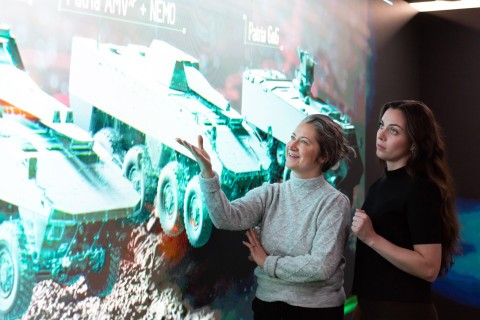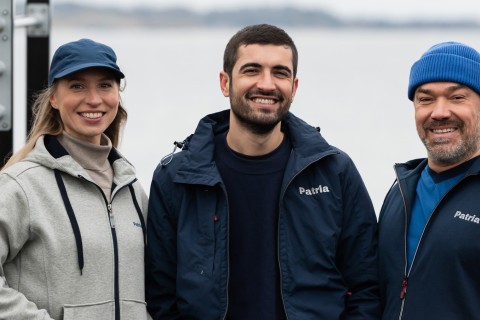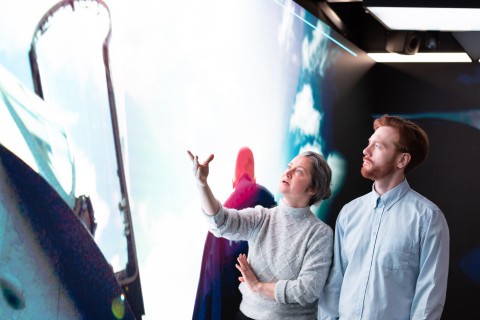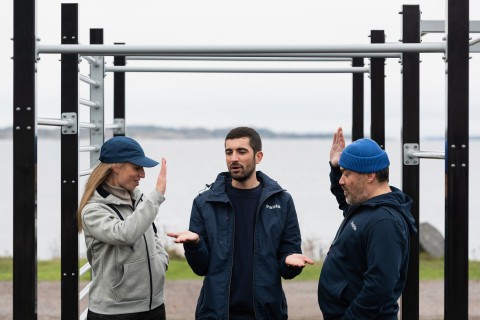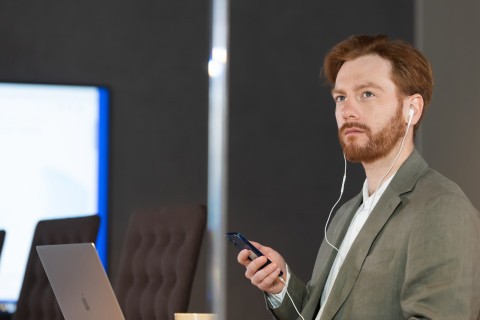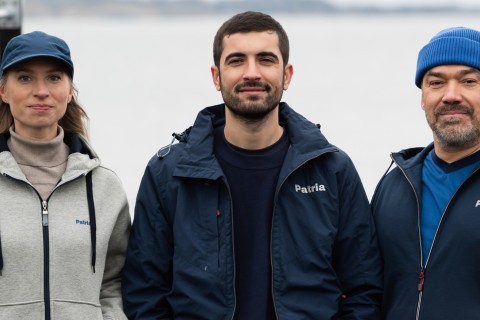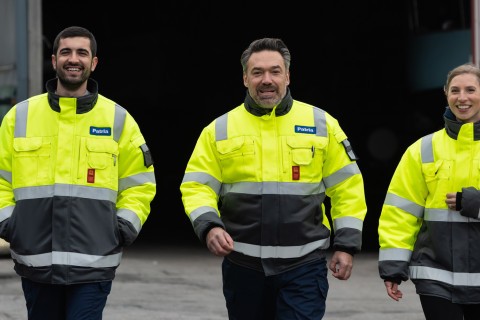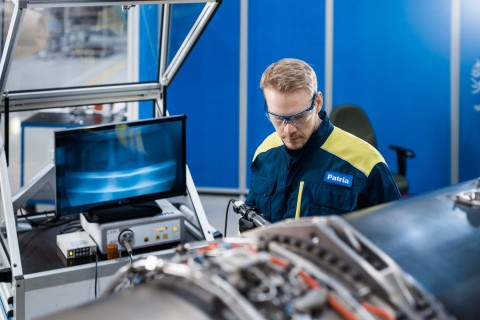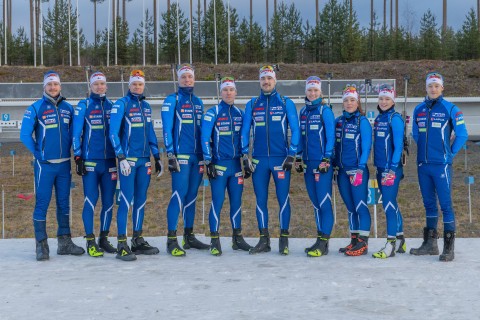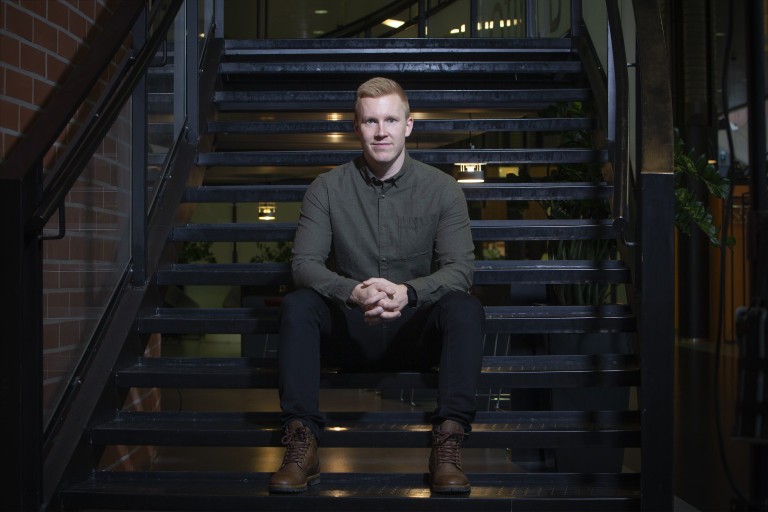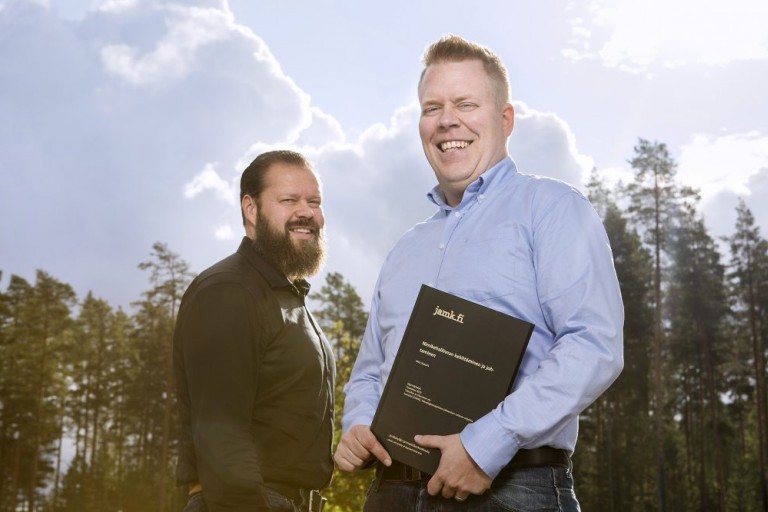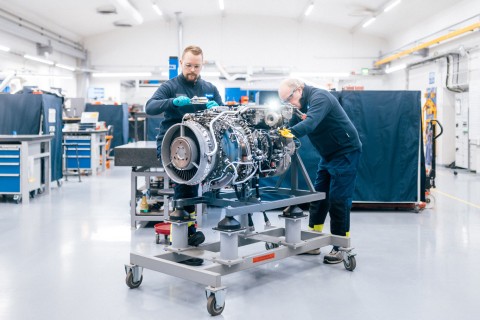
16.11.2018
The future growth of the Patria’s Systems Business Area is being spurred by internationalisation and productisation. This is the viewpoint of Jonas Geust, who begun as the President of Systems business unit in September 2018. However, the cornerstone of the business – the customer-driven domestic market – must not be forgotten due to the focus on growth.
Jonas Geust is excited about his new job. He is surprised at the versatile expertise and development available within the Patria Group. -I was surprised upon being asked to lead Systems. For me Patria, was all about armoured wheeled vehicles and heavy equipment. I was unaware, for example, of how much coding expertise there is in-house, he says. Despite having led the Business Area for a few months, he says that he still gains new insights every day. - I grow more curious, the more I get to know about our projects and staff, he says. Systems is one of Patria’s fastest growing business areas. - There are 330 Systems people at the moment, but the pressure to find more promising talent is growing as we strive more systematically for the internationalisation and productisation of our activities, he says.
Identify customers, bring precision to projects
Both internationalisation and productisation require sustained operational development, market analysis and the identification of new customers. Geust has a wealth of experience of these activities, having served for long periods in management roles in Nokia, such as leading the global product portfolio of its N Series division. Before joining Patria, he led the automotive software company Rightware, whose global success is based on well-thought-out and focused market identification. - On the basis of my previous experience and knowledge, I see Systems as having great potential for internationalisation, once we understand our position on the market, identify our most natural customers and, in our projects, focus more on those areas in which we can be the world’s best, he says. Geust believes that Patria should now focus on promoting projects in areas where it has the strongest and most competitive international potential for creating profitable and scalable business. - For example, there is huge potential in passive sensors, he says.
Strategic partners are in a key position
Geust believes that Patria has now achieved strong momentum in its internationalisation. Attractive new routes to internationalisation are offered by the recently acquired Norwegian industrial group Kongsberg and the ongoing Ministry of Defence fighter project to replace the current Hornets with new fighters. - The fighter tendering processes provide an excellent opportunity to network with a large number of international companies and forge contacts that could lead to important partners of the future. Kongsberg’s international cooperation with actors in the industry is another key path in the internationalisation of Patria’s operations, Geust says. He explains that internationalisation processes are long-term and very costly exercises, whose success depends on the ability to network widely and market your own expertise on the international markets. - Patria is now investing heavily in market entry. We will achieve results when able to approach the markets in the right way, alongside our formidable engineering expertise, says Geust. Showcasing our high-tech expertise will require the ability and desire to build a market-oriented narrative. This is about building our own brand that both promotes a positive employer image and helps us to find the future factors enabling us to reinforce our long experience of the industry within Patria.
Domestic cornerstone must not be forgotten
Geust, who moved from a startup to a large concern, is idealistic about his new task. The goal is to combine the resources of a large corporation with the agility of a small company. -The group's business units work very independently, but cooperate whenever this makes sense with respect to customer accounts. You need to be agile in trying out various approaches and choosing those which create the most profitable business, says Geust. However, he also points out that we must remember the basics while caught up in growth and internationalisation. - Customer-driven projects for the Defence Forces form the basis of our business, and we must continue to foster them. Growth can also be achieved on the domestic market by providing software packages to other security-critical public-authorities. The key issue in Systems is to create an efficient operating model enabling an intelligent balance between the development of traditional customer-driven products and services, and activities focused on internationalisation and productisation, explains Geust.
What did you like about the article?
Thank you for your opinion! You can share the article on social media using the buttons below:



